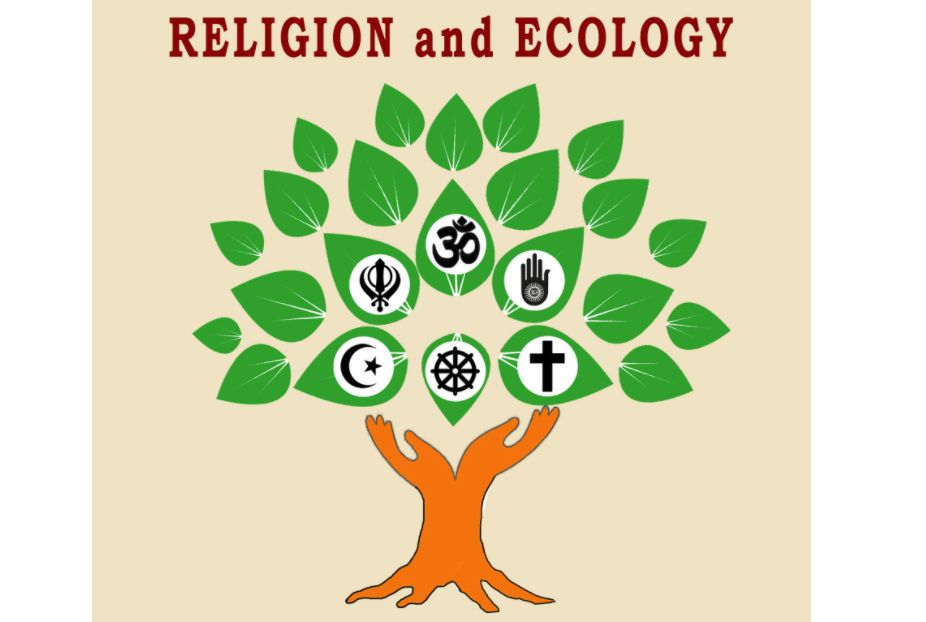Free Coursera Course: Religions and Ecology
from Cousera https://www.coursera.org/specializations/religion-ecology?
WHAT YOU WILL LEARN
-
Religious communities:
- What ecojustice actions are taking place on in my own religion?
- What can I learn from examples of faith-based action?
-
Environmentalists:
- What voices might I learn from in pursuing ecological conservation?
- How is ecojustice contributing to solutions social problems?
-
Policy:
- Religions can be active partners in finding eco-solutions. The partnership joins the moral force of faith into eco and climate emergencies.
-
Religious:
What environmental activities are going on in my own religious tradition? What opportunities are there for interreligious engagement?
SKILLS YOU WILL GAIN
- Religion
- Ecology
- conservation
- indigenous
- Climate Change
- environment
- Philosophy
About this Specialization
Why do religions matter when we talk about environmental problems and solutions?
- The environmental crisis is not simply a political, economic, or technological problem; it is a moral and spiritual call to long-term change.
- Religious narratives resonate with large numbers of people —85% of the world’s population belong to religious communities.
- Religions have educational institutions around the world that can inspire people for an ecologically just future.
- Religious structures and sacred spaces provide a symbolic and practical context for aligning humans with nature.
- Religions have financial assets that can be used for transformative change, such as divestment and reinvestment.
To whom will these courses appeal?
- Lifelong learners curious to know more about world religions and ecology
- Environmental professionals eager to deepen the discourse of environmental protection and conservation
- Those working with non-profit organizations and NGOs on issues of ecological justice, especially where minority communities are adversely affected
- Those involved in education — College and high school students looking for a broader view of religion and spirituality, teachers developing curriculum,
- Those involved in the world’s religions — Religious leaders and laity who want to know how they can contribute to interreligious dialogue on environmental issues; Religious communities interested in building engaging projects, such as the restoration of local bioregions.
Applied Learning Project
1. Introduction to Religions and Ecology
Broad introduction to the study of religion and history of ecology
Highlights moral force of religions and ecology
Prepares learners for the other courses
2. Indigenous Religions and Ecology
Africa, Asia, Americas, Pacific Regions
3. South Asian Religions and Ecology
Hinduism, Jainism, Buddhism, Sikhism, Baha’i Faith
4. East Asian Religions and Ecology
Confucianism, Daoism, Buddhism, Shinto, Korean Shamanism
5. Western Religions and Ecology
Judaism, Christianity, Islam
None
How the Specialization Works
Take Courses
A Coursera Specialization is a series of courses that helps you master a skill. To begin, enroll in the Specialization directly, or review its courses and choose the one you’d like to start with. When you subscribe to a course that is part of a Specialization, you’re automatically subscribed to the full Specialization. It’s okay to complete just one course — you can pause your learning or end your subscription at any time. Visit your learner dashboard to track your course enrollments and your progress.
Hands-on Project
Every Specialization includes a hands-on project. You’ll need to successfully finish the project(s) to complete the Specialization and earn your certificate. If the Specialization includes a separate course for the hands-on project, you’ll need to finish each of the other courses before you can start it.
Earn a Certificate
When you finish every course and complete the hands-on project, you’ll earn a Certificate that you can share with prospective employers and your professional network.

There are 5 Courses in this Specialization
Introduction to Religions & Ecology
At first glance the fields of religion and ecology may seem and unlikely pairing, but a deeper consideration reveals the two have a great deal to contribute to one another and are indeed inextricably linked. Religions recognize the unity and interdependence of humans with nature. Ecological sciences affirm this deep interconnection with the natural world. This partnership can inspire work for the wellbeing of the Earth community
Indigenous Religions & Ecology
At first glance the fields of religion and ecology may seem and unlikely pairing, but a deeper consideration reveals the two have a great deal to contribute to one another and are indeed inextricably linked. Religions recognize the unity and interdependence of humans with nature. Ecological sciences affirm this deep interconnection with the natural world. This partnership can inspire work for the wellbeing of the Earth community
South Asian Religions & Ecology
At first glance the fields of religion and ecology may seem and unlikely pairing, but a deeper consideration reveals the two have a great deal to contribute to one another and are indeed inextricably linked. Religions recognize the unity and interdependence of humans with nature. Ecological sciences affirm this deep interconnection with the natural world. This partnership can inspire work for the wellbeing of the Earth community
East Asian Religions & Ecology
At first glance the fields of religion and ecology may seem and unlikely pairing, but a deeper consideration reveals the two have a great deal to contribute to one another and are indeed inextricably linked. Religions recognize the unity and interdependence of humans with nature. Ecological sciences affirm this deep interconnection with the natural world. This partnership can inspire work for the wellbeing of the Earth community
Instructors

Mary Evelyn Tucker
Senior Lecturer and Senior Research Scholar
29,581 Learners
13 Courses

John Grim
Senior Lecturer and Senior Research Scholar
29,581 Learners
13 Courses
Offered by

Yale University
For more than 300 years, Yale University has inspired the minds that inspire the world. Based in New Haven, Connecticut, Yale brings people and ideas together for positive impact around the globe. A research university that focuses on students and encourages learning as an essential way of life, Yale is a place for connection, creativity, and innovation among cultures and across disciplines.

